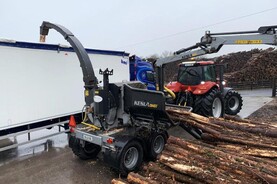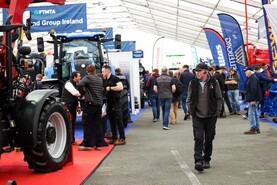CNH, owner of the New Holland and Case IH farm machinery companies, has updated its CO2 emission targets for 2030. The company’s recently published CNH Sustainability Report 2018 explains that it is on target to distribute new alternative-fuel tractors (methane and propane) by 2022.
These tractors are set to generate 80% less polluting emissions and 10% less CO2 emissions compared to the current diesel engine models.
CNH claims to be on target to implement new efficient technologies on next-generation combine harvesters to significantly reduce total cost of ownership by 2020
Methane-powered New Holland and Case IH wheel loaders will be available from 2024, according to the CNH sustainability report.
CNH claims to be on target to implement new efficient technologies on next-generation combine harvesters to significantly reduce total cost of ownership by 2020, while also planning to raise field productivity by 25% by expanding data management and control systems for harvesting, tractors, and crop production.
The aim is to offer customers the best total cost of ownership figures when using clean diesel engines
FPT Industrial, the engine manufacturing side of CNH, is currently focusing on developing even cleaner diesel engines, aimed at delivering the highest efficiency (up to 50%) and on enhancing exhaust heat recovery systems. The aim is to offer customers the best total cost of ownership figures when using clean diesel engines.
CNH Group, part of the Italian Fiat organisation, produced 183,000 farm machinery units (tractors and harvesters) and 44,000 construction machines worldwide in 2018
The company aims to cut CO2 emissions per machine produced by 60% compared with 2014 figures, across all of its factories. It plans to use renewable energy sources to supply 90% of its electricity supplies by then.
CNH Group, part of the Italian Fiat organisation, produced 183,000 farm machinery units (tractors and harvesters) and 44,000 construction machines worldwide in 2018. Revenues at CNH grew from $25bn in 2016 to $29bn in 2018, with a loss of $261m in 2016 transformed to an income/profit of over $1bn in 2018.






 This is a subscriber-only article
This is a subscriber-only article










SHARING OPTIONS: